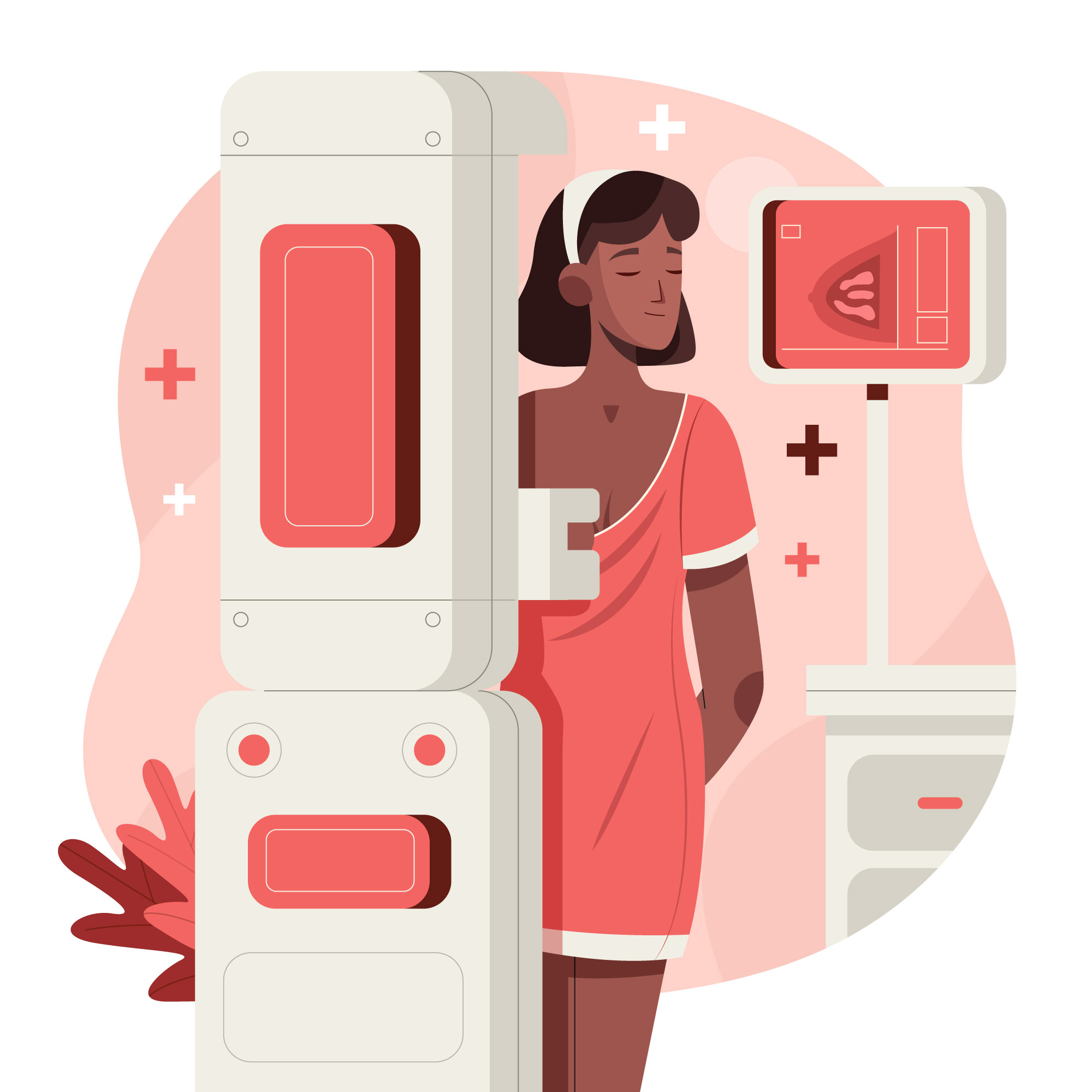

A study from the Karolinska Institutet found that one radiologist working with AI found more breast cancer cases during mammogram screenings than when two radiologists worked together. This study, “Artificial intelligence for breast cancer detection in screening mammography: A paired-readers prospective interventional screen positive trial,” was published in The Lancet Digital Health. The researchers believe that AI is now ready to be used for breast cancer screenings.
For more than 30 years, mammogram screenings have been vital for breast cancer detection and lowering its related deaths. However, there aren’t enough radiologists, and some cancers get missed. Past studies have suggested that using artificial intelligence can help solve these problems.
“AI and humans perceive images slightly differently, which creates a synergy that improves our chances of detecting cancer,” says first author Karin Dembrower, affiliated researcher at the Department of Oncology-Pathology, Karolinska Institutet.
Typically, two radiologists check the breast cancer detection reports. However, this study used both – 2 radiologists and AI to decide if women needed more tests. By comparing the results to people who actually had breast cancer, the researchers could see how well different combinations of AI and radiologists worked compared to the usual way with two radiologists.
“With the ScreenTrustCAD study, we wanted to examine how well two radiologists performed compared with one radiologist and AI, and AI alone,” says Dr. Dembrower.
They did this study at Capio St. Göran’s Hospital in Stockholm from April 2021 to June 2022. They checked over 55,500 women aged 40 to 74.
When they used the usual method with two radiologists, they found 250 cancers. But when they added AI to the two radiologists, they found the most cancers, which was 269. When they used just one radiologist with AI, they found 261 cancers in the same group. AI, by itself, found 246 cancers, which was just as good as the usual way with two radiologists.
“Compared with the current two-radiologist standard, assessment by one radiologist and AI resulted in a four percent increase in breast cancer detection and halved the radiologists’ image reading time,” says principal investigator Fredrik Strand, radiologist and docent at the Department of Oncology-Pathology, Karolinska Institutet.
The researchers discovered that when they used one radiologist with AI and AI alone, there were fewer false positives. Specifically, they reduced the number of times they wrongly asked healthy women to return for more tests. With one radiologist and AI, this reduction was about 6%, whereas with AI alone, there was a significant 55% drop in these errors. This is important because it prevents unnecessary suffering and costs for those women.
“It’s clear to us that for screening mammography, one AI-supported radiologist is a better alternative than two radiologists without AI,” says Dr. Strand. “Unlike a previous study from Lund University, this improvement is statistically validated in ScreenTrustCAD. Even if AI takes over much of the initial examination, a radiologist is needed to make the judgment before any patient is recalled for further investigation, and, if necessary, to take biopsies from suspicious breast areas.”
He continues, “Our study shows that AI is ready for controlled implementation in screening mammography. However, you must choose an AI system that has been properly tested on images from the same type of mammography equipment and ensure continuous monitoring after clinical implementation. In the longer term, AI has the potential to take over the majority of screening mammography assessments.”
At Capio St. Göran’s Hospital, AI is being used to help radiologists with mammogram screenings since June 2023, allowing the radiologists more time to care for women with breast cancer.
Know more about Breast Cancer – Detection, Diagnosis, and Patient Psychological care
more recommended stories
 Dietary Melatonin Linked to Depression Risk: New Study
Dietary Melatonin Linked to Depression Risk: New StudyKey Summary Cross-sectional analysis of 8,320.
 Chronic Pain Linked to CGIC Brain Circuit, Study Finds
Chronic Pain Linked to CGIC Brain Circuit, Study FindsKey Takeaways University of Colorado Boulder.
 New Insights Into Immune-Driven Heart Failure Progression
New Insights Into Immune-Driven Heart Failure ProgressionKey Highlights (Quick Summary) Progressive Heart.
 Microplastic Exposure and Parkinson’s Disease Risk
Microplastic Exposure and Parkinson’s Disease RiskKey Takeaways Microplastics and nanoplastics (MPs/NPs).
 Sickle Cell Gene Therapy Access Expands Globally
Sickle Cell Gene Therapy Access Expands GloballyKey Summary Caring Cross and Boston.
 Reducing Alcohol Consumption Could Lower Cancer Deaths
Reducing Alcohol Consumption Could Lower Cancer DeathsKey Takeaways (At a Glance) Long-term.
 NeuroBridge AI Tool for Autism Communication Training
NeuroBridge AI Tool for Autism Communication TrainingKey Takeaways Tufts researchers developed NeuroBridge,.
 Population Genomic Screening for Early Disease Risk
Population Genomic Screening for Early Disease RiskKey Takeaways at a Glance Population.
 Type 2 Diabetes Risk Identified by Blood Metabolites
Type 2 Diabetes Risk Identified by Blood MetabolitesKey Takeaways (Quick Summary) Researchers identified.
 Microglia Neuroinflammation in Binge Drinking
Microglia Neuroinflammation in Binge DrinkingKey Takeaways (Quick Summary for HCPs).

Leave a Comment